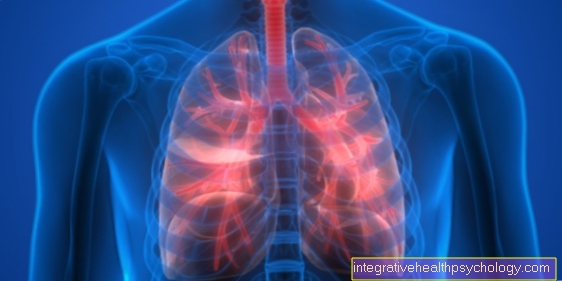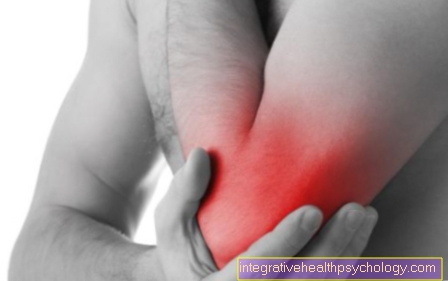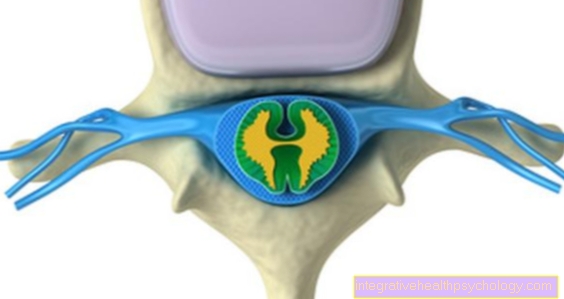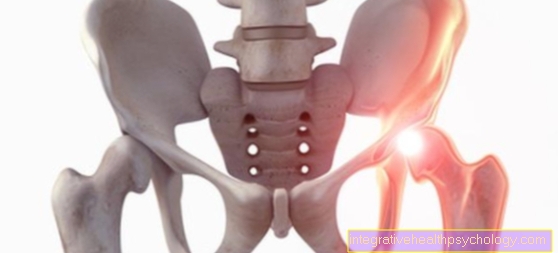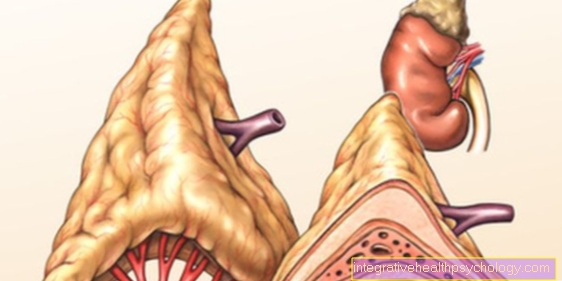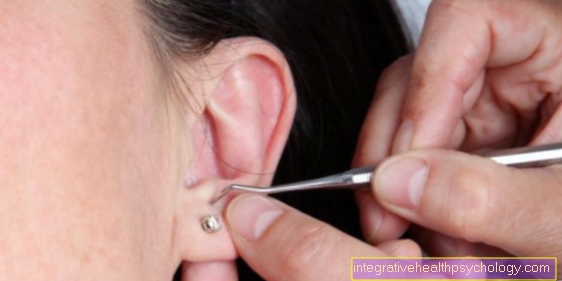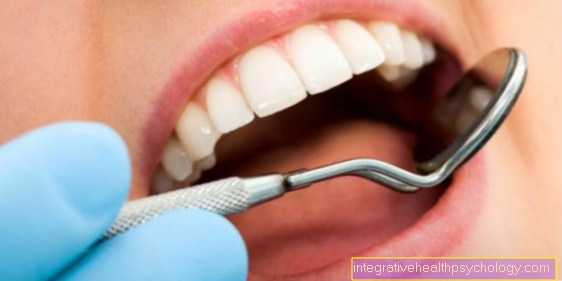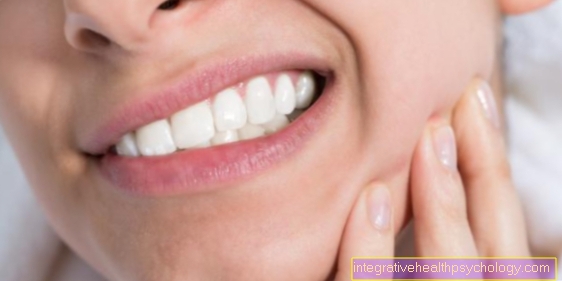Side effects of St. John's wort
Side effects
When taking St. John's wort, there may be a side effect of sensitivity to sunlight.
Therefore, you should not take or rub St. John's wort before sunbathing. Immunodepressant medication is weakened by St. John's wort.
In rare cases, allergic skin reactions, tiredness, restlessness or gastrointestinal complaints can occur as side effects.
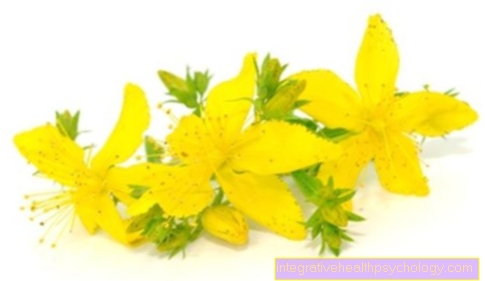
Weight gain as a side effect
Some people seem to gain weight while taking St. John's wort supplements. The exact cause is relatively unclear. Other antidepressants, especially older ones, can also trigger weight gain. However, the mechanisms of action of these substances are much better understood. In addition, St. John's wort preparations are a mixture of many ingredients, each of which in turn could have a variety of different effects. It is speculated that the weight gain is due to a change in well-being. Perhaps the appetite increases simply because of the change in mood. In particular, eating foods rich in sugar and high calories can also briefly improve mood. This is one of the reasons why depression and weight gain are often related.
You may also be interested in the following topic: Antidepressants without weight gain
Side effects on the skin
St. John's wort can increase the skin's sensitivity to light. People with light skin who are particularly sensitive to light anyway can develop blistered sunburn when taking higher doses of St. John's wort in conjunction with excessive exposure to the sun. The increased sensitivity to light caused by St. John's wort is called hypericism after the plant pigment responsible for it. In particular, caution is required if other drugs are also taken, which can also produce a similar effect. In addition, when taking St. John's wort, make sure you have adequate sun protection. A visit to a tanning salon or extended periods of sunbathing in the outdoor pool is also not recommended due to the high UV exposure. Some medical interventions also work with artificial rays, which can have a much stronger effect than ordinary sunlight. An example of this is laser treatment or targeted irradiation with UV light. Due to the higher intensity, even low doses of St. John's wort may be sufficient to trigger a reaction. However, some studies also give the all-clear. The dose of St. John's wort normally taken is in most cases too low to trigger hypericism. However, St. John's wort is also used in higher doses due to its antiviral effect. Sufficient protection from light should always be ensured.
Erectile dysfunction as a side effect
Erectile dysfunction is considered to be one of the undesirable effects of certain antidepressants. However, they only appear to occur in exceptional cases while taking St. John's wort. The possible mechanism of action and the effectiveness of the substances contained in St. John's wort is still relatively poorly researched. This is another reason why it is difficult to explain any undesired effects that may be observed. In addition, many over-the-counter preparations that contain St. John's wort contain too little active substance to have a detectable effect.
However, if erectile dysfunction occurs due to an impaired mood, it can take a while for the erectile dysfunction to get better, as St. John's wort needs a while to have a mood-enhancing effect. During this time, erectile dysfunction can occur while taking St. John's wort without St. John's wort being the cause.
Read more on the subject at: Cause of erectile dysfunction
Side effects on the liver
Certain substances contained in St. John's wort are broken down and metabolized in the liver. So-called cytochrome p450 enzymes play a special role here. If St. John's wort is taken frequently, the body reacts. An increased amount of cytochrome p450 enzymes is produced in the liver. This is especially the case with high-dose preparations containing St. John's wort. Even if the increased formation of cytochrome p450 enzymes is initially harmless, problems can arise as soon as drugs are taken that require these enzymes to work or are also broken down by them. In addition, St. John's wort seems to have a directly harmful effect on the liver, especially in high doses.
Fatigue as a side effect
Often, fatigue is reported as an undesirable effect of preparations containing St. John's wort. It seems to occur especially when taking St. John's wort for a long time. It is possible that substances contained in St. John's wort influence the level of the body's own hormone melatonin. There is also evidence that melatonin or similar substances are found in St. John's wort. Melatonin is used in the body, among other things, to control the day-night rhythm. In addition, depression is often associated with sleep disorders.
If St. John's wort has a sufficient effect on depression, it can also lead to an improvement in sleep. This can be felt as increased tiredness. In some cases, such as sleep disorders, the actually undesirable effect of fatigue can also be specifically sought. However, the tiredness-inducing effect of St. John's wort is hardly sufficient to be used as an effective sleep aid.
Sweating as a side effect
Excessive sweating can also be a side effect of St. John's wort supplements. This is often described as uncomfortable by those affected. As with all side effects, if you sweat too much, a visit to a doctor can be useful. It should be noted that sweating can also occur in the course of the so-called serotonin syndrome. It is caused by a disruption in serotonin levels and is potentially life threatening. Many prescription antidepressants work at least in part through serotonin. St. John's wort may also interfere with the metabolic pathways of the hormone. A combination of several preparations can therefore possibly lead to serotonin syndrome, which is why they should not be taken together.
You might also be interested in: Excessive Sweating - What Is The Cause?
Headache as a side effect
Headache may occur when taking St. John's wort. Often these headaches are associated with dizziness or neck problems. But this does not have to be the case. Headache is a common undesirable effect that can occur with a wide variety of drugs. Normally this is a relatively harmless but unpleasant side effect.
However, this does not always have to be the case. For example, headaches can occur as part of a so-called serotonin syndrome. This dangerous syndrome can arise when serotonin levels in the body get out of control. Since classic antidepressants can have an influence on the serotonin metabolism due to their effect, they should not be combined with St. John's wort. St. John's wort probably also has an influence on the metabolism of the hormone serotonin, which makes interactions possible. This is one of the reasons for taking St. John's wort only after consulting a doctor. Many complications can be avoided or at least alleviated in this way.
What side effects may I experience after stopping?
Many prescription antidepressants can cause serious side effects such as restlessness, insomnia, or diarrhea after they are stopped. A so-called relapse syndrome can also occur. Here, previous depressive syndromes reappear and possibly even intensified. Therefore, these drugs should be tapered off. With St. John's wort these undesirable effects do not appear to occur or to a lesser extent. Even so, there have been repeated reports of side effects after stopping St. John's wort. Often these are compared to those of prescription antidepressants. The mechanism of action of St. John's wort preparations has not yet been conclusively elucidated. It is therefore difficult to identify or assign possible side effects. It is recommended that preparations containing St. John's wort are tapered off slowly. It is best to take and discontinue St. John's wort preparations only after consulting a doctor.
Interaction with other drugs
The liver increases the production of the enzyme Cyp 3A4 while taking St. John's wort. This enzyme belongs to the group of so-called cytochrome p450 enzymes. This group of enzymes is used in the body to break down a whole range of substances. They are especially important in activating and breaking down a whole range of drugs. If the enzyme Cyp 3A4 is now present to a greater extent due to the intake of St. John's wort, the breakdown and activation of all active substances, which also require Cyp 3A4 for their metabolism, also change. This can be life-threatening if the affected medication is taken because of a serious illness. These include, for example, certain AIDS drugs, antibiotics or immunosuppressants. There have already been fatalities after the use of St. John's wort so impaired the effectiveness of immunosuppressants that they were no longer effective. Also with cardiac glycosides and anticoagulants, attention should be paid to possible interactions.
Oral contraceptives (anti-baby pills) are also partly metabolized by Cyp 3A4 and can thus be impaired in their effectiveness. You can find more on the subject at: Pill doesn't work
St. John's wort in pregnancy
Containdication
For the use of St. John's wort during pregnancy or Lactation lie to this day no scientific knowledge in front.
Side effects cannot be ruled out during pregnancy or breastfeeding.
Find out more about alternatives on our website: Homeopathy in Pregnancy
Manufacturer / trade name
Manufacturers are named as examples and were selected at random. we have with none Manufacturers a personal connection!
St. John's Wort Sandoz® 425 mg hard capsules 60 tablets (N2) € 14.80
St. John's Wort Sandoz® 425 mg hard capsules 100 tablets (N3) € 23.50
ST. JOHN'S WORT ratiopharm® 425 30 tablets (N1) € 7.80
ST. JOHN'S WORT ratiopharm® 425 60 tablets (N2) € 14.30
ST. JOHN'S WORT ratiopharm® 425 100 tablets (N3) € 23.50
Phytopharmaceuticals in Germany
The list of the best-selling herbal preparations led by far the ginkgo:
- ginkgo
- Johannis herbs
- Devil's claw
- Horse chestnuts
- artichoke
- Milk thistle
- Nettle
- Umckaloabo
- Hawthorn
- ivy
A list of all medicinal herbs / medicinal plants that we have already published can be found under: Medicines A-Z.


